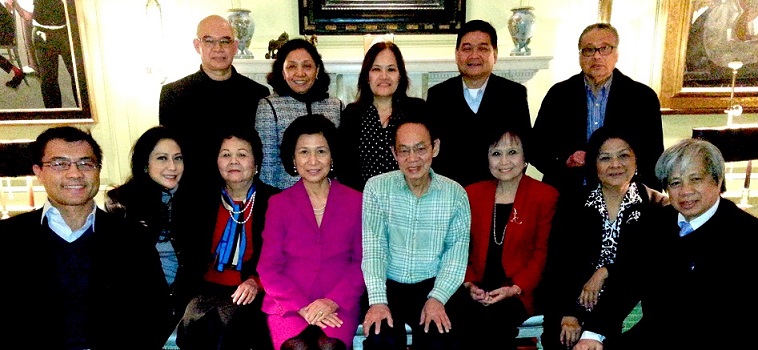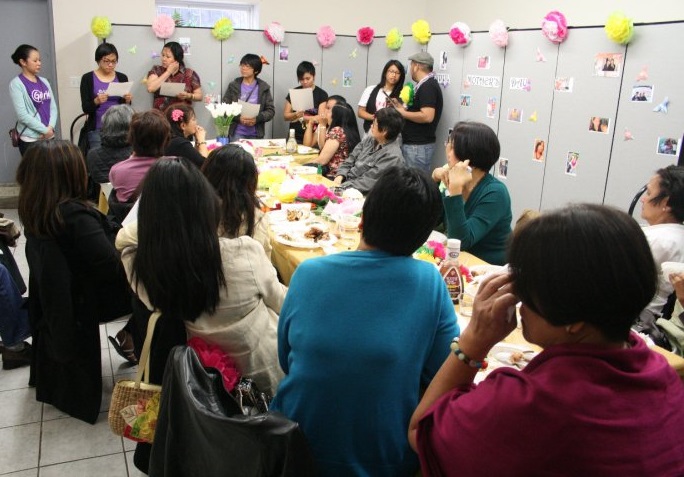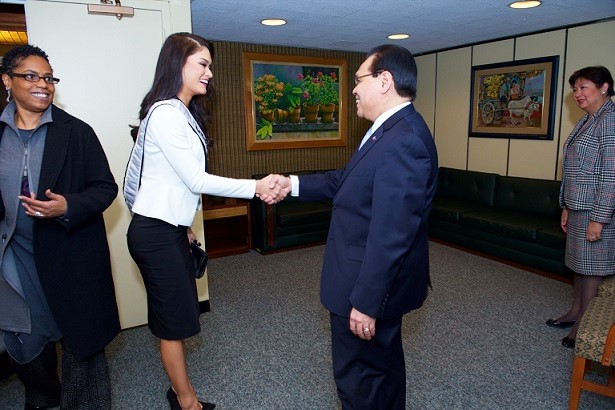Brexit’s possible impact on the Filipino community in the UK: A view from a former Consul General in London

Consul General Mario de Leon Jr. with Ms. Cherie Blair, wife of former UK Prime Minister Tony Blair. They saw each other during the papal mass at Madison Square Garden in September 2015. De Leon was the ‘Congen’ when Blair led the UK from 1997 to 2007.
By Mario Lopez de Leon Jr.
Consul General in New York
SPECIAL TO ‘THE FILAM’
The result of the referendum on the exit of the United Kingdom (UK) from the European Union, or Brexit, has been described as historic, shocking, stunning and jolting. The resounding vote for Brexit over Remain last June 24 has been mainly attributed to the British people’s economic grievance and immigration anxieties.
How Brexit will impact the lives of the British people and the political, economic, legal and diplomatic relations of the UK with the rest of the EU is now and will be the subject of much analysis from pundits and the media. This article does not intend to address that.
As a former Consul General of the Philippine Embassy in the UK from 2000 to 2006, I wish to share some preliminary observations on what may have led to this vote and its impact primarily on the Filipino community.
In 2000, when I assumed as Consul General, there were only about 50,000 Filipinos in the UK. Most of them were service staff workers and a few professionals. That was also the time when the country’s National Health Service (NHS) faced a nursing shortage and started to recruit foreign nurses, many from the Philippines and India, to cope with the increasing demand for healthcare services.
By 2006 or at the time I was finishing my tour of duty, the population of the Filipino community ballooned to almost 150,000 mainly due to the continued influx of nurses and other healthcare professionals. Members of their families also joined in line with the family reunification policy of immigration. Many EU citizens, particularly from Eastern Europe, were also starting to migrate to the UK. I ascribe this phenomenon mainly to the freedom of movement and people among EU member countries or what is better known as an open immigration policy. But what made the UK more attractive to EU nationals were the better employment opportunities available and the more generous social services offered in health, education and housing. These migrating EU nationals also enjoy parity on social benefits provided to the native population.
Fast forward to 2016 or 10 years after, more than a million EU nationals have migrated to the UK, causing greater strain and stress in the job market and social services. This situation has also been aggravated with the austerity measures put in place by the Tory Government of Prime Minister David Cameron in the aftermath of the financial crisis of 2007. I believe that the Filipino migrants were not spared from the more restrictive policies on access to social services and the keen competition for jobs since EU nationals were accorded priority over them.
With Brexit now a decision of the British people, how will the withdrawal affect the Filipino community in the UK? The Philippine Embassy in the UK now estimates the Filipino migrant population at 200,000.
There are no clear answers yet considering that the exit process will be at least two years from the time the British Parliament exercises Chapter 50 of the Treaty governing EU membership. But from my vantage view, the impact may be mixed.
The immediate impact would be the depreciation of the pound sterling vis-a-vis the major currencies of the world. That would translate to more pounds to be sent by our OFWs to their families to maintain the amount of pesos they regularly remit.
In the medium term however, there are many complex and lasting changes that may happen. UK trade with the single market may affect the easy entry of Philippine goods coming from the international ports of the continent and also limit the ability of Filipino entrepreneurs in the UK to operate in other EU countries. Philippine products in Filipino and Asian stores may become more expensive.
More importantly and depending on how the UK will treat the immigration status of EU citizens now living in Britain, the Filipino community’s access to social services such as the National Health Service, council housing and school placement might ease. EU nationals would no longer enjoy priority over non-EU ones like Filipinos.
Also, the job market may be expected to be fairer to non-EU nationals, including Filipinos. Although the latter may be a little optimistic since the prognosis on the massive loss of jobs as a result of Brexit is widely shared by commentators.












